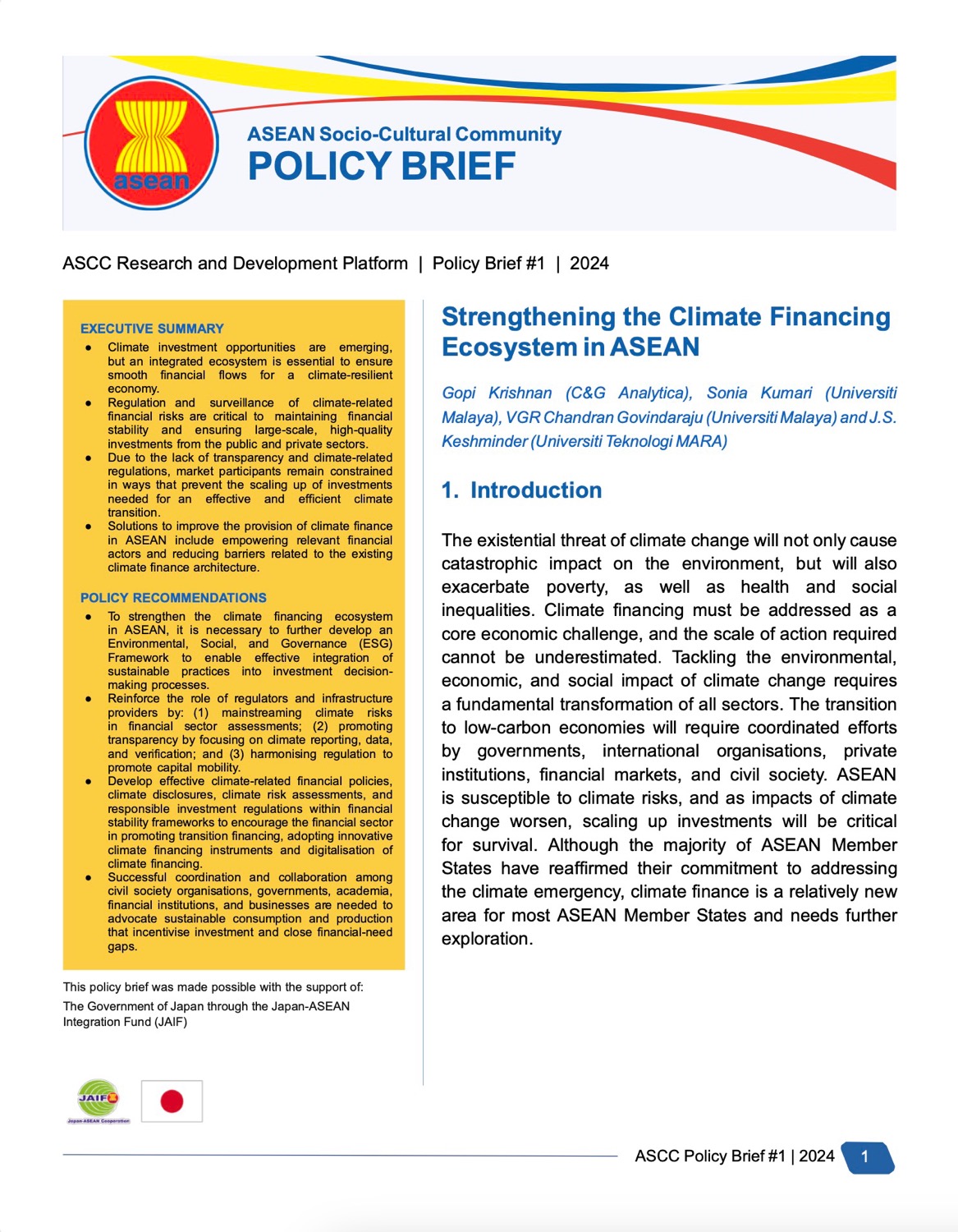

EXECUTIVE SUMMARY
- Climate investment opportunities are emerging, but an integrated ecosystem is essential to ensure smooth financial flows for a climate-resilient economy.
- Regulation and surveillance of climate-related financial risks are critical to maintaining financial stability and ensuring large-scale, high-quality investments from the public and private
- Due to the lack of transparency and climate-related regulations, market participants remain constrained in ways that prevent the scaling up of investments needed for an effective and efficient climate
- Solutions to improve the provision of climate finance in ASEAN include empowering relevant financial actors and reducing barriers related to the existing climate finance architectur
POLICY RECOMMENDATIONS
- To strengthen the climate financing ecosystem in ASEAN, it is necessary to further develop an Environmental, Social, and Governance (ESG) Framework to enable effective integration of sustainable practices into investment decision- making pr
- Reinforce the role of regulators and infrastructure providers by: (1) mainstreaming climate risks in financial sector assessments; (2) promoting transparency by focusing on climate reporting, data, and verification; and (3) harmonising regulation to promote capital mobility.
- Develop effective climate-related financial policies, climate disclosures, climate risk assessments, and responsible investment regulations within financial stability frameworks to encourage the financial sector in promoting transition financing, adopting innovative climate financing instruments and digitalisation of climate
- Successful coordination and collaboration among civil society organisations, governments, academia, financial institutions, and businesses are needed to advocate sustainable consumption and production that incentivise investment and close financial-need
Share







